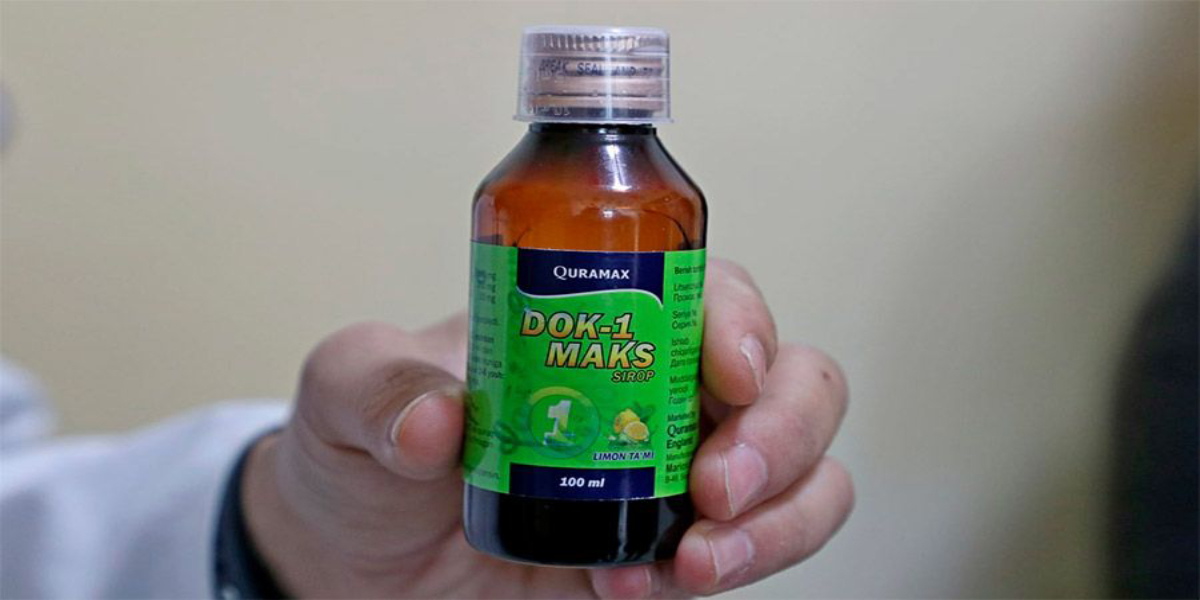18 out of 21 children with acute respiratory disease have died as a result of taking Doc-1 Max syrup manufactured by Marion Biotech.

Marion Biotech is based out of Noida in Uttar Pradesh. (Supplied)
After the death of 70 children in the Gambia, allegedly due to Indian cough syrup, the Uzbekistan government on Wednesday, 28 December, said 18 children in the country died due to the side effects of a cough syrup produced by Marion Biotech, an Indian pharmaceutical firm.
“We reported the occurrence of side effects in children as a result of taking the drug Doc-1 Max in the city of Samarkand,” said the Ministry of Health of Uzbekistan in a statement.
“To date, 18 out of 21 children with acute respiratory disease have died as a result of taking Doc-1 Max syrup,” he added.
The ministry also said that tablets and the syrup Doc-1 Max manufactured by Marion Biotech Private Limited in our country were registered in 2012 and went on sale the same year.
Marion Biotech is based out of Noida in Uttar Pradesh, and caters to the Indian market as well as various countries across the globe, like Russia, former Soviet-Republics countries, South East Asia, Africa, and Latin America, according to the company’s website.
On the basis of the relevant order of the ministry, the authorities conducted an internal investigation into the fact with a site visit.
According to the Agency for the Development of the Pharmaceutical Industry, each drug series was tested with the subsequent issuance of a certificate of conformity. This drug was imported into the country by Quramax Medical LLC.
To date, 18 out of 21 children with acute respiratory disease have died as a result of taking Doc-1 Max syrup, the authorities apparently concluded.
It was reportedly found that the deceased children, before admission to hospital treatment, took this drug at home for two to seven days, three-four times a day, in doses of 2.5-5 ml, which exceeded the standard dose of the drug for children.
All the children were given the drug without a doctor’s prescription.
“Since the main component of the drug is paracetamol, Doc-1 Max syrup was incorrectly used by parents as an anti-cold remedy on their own or on the recommendation of pharmacy sellers. And this was the reason for the deterioration of the condition of patients,” said the ministry.
It added that paracetamol should only be used at a body temperature of 38-38.50C(100-100.50F) and more than once or twice a day. At normal body temperature, taking this drug is strictly prohibited.
According to the ministry, preliminary laboratory studies showed that a certain series of Doc-1 Max syrup contained ethylene glycol.
“This substance is toxic, and about 1-2 ml/kg of a 95 percent concentrated solution can cause serious changes in the patient’s health, such as vomiting, fainting, convulsions, cardiovascular problems, and acute kidney failure,” said the ministry.
Taking into account all cases of violation of the law identified by the working group of the Ministry during the study, seven responsible employees were dismissed from their positions due to the fact that they were negligent and inattentive to their duties, did not analyse child mortality in a timely manner, and did not take the necessary measures, also disciplinary measures were applied to a number of specialists.
The collected documents were handed over to law enforcement agencies.
Currently, tablets and syrups of the drug Doc-1 Max are withdrawn from sale in all pharmacies of the country.
The shortcomings identified on the basis of the study materials and the issue of the responsibility of medical workers will be considered at a separate meeting of the Ministry of Health.
In this regard, the ministry has asked parents to be attentive to the health of their children, and to purchase medicines in pharmacies only by prescription.
Suspecting that the deaths of several children in West Africa’s Gambia from kidney-related complications were linked to four cough-and-cold syrups manufactured by an Indian company, the WHO issued a medical product alert on 5 October.
The four products were Promethazine Oral Solution, Kofexmalin Baby Cough Syrup, Makoff Baby Cough Syrup, and Magrip N Cold Syrup.
Medical officers in Gambia raised an alarm in July after several children began falling ill with kidney-related problems three to five days after taking a locally-sold paracetamol syrup.
As many as 28 of them died by August, and the health authorities expected the toll to increase. The toll had risen to 66 by the time the WHO issued its alert in October.
However, the Indian government said that the syrups manufactured and exported were found to be of standard quality. It also claimed that accusations against these syrups impacted the image of India’s pharmaceutical products.
While the Gambia Parliamentary Committee found that Maiden Pharmaceuticals, which manufactured the medicine, was responsible for the deaths of the kids.
“The Select Committee is convinced that Maiden Pharmaceuticals Limited is culpable and should be held accountable for exporting the contaminated medicines that were linked to the death of at least 70 children in the Gambia,” read the committee’s report, accessed by South First.
It further recommended the blacklisting of Maiden Pharmaceuticals products and a ban on all their products in the Gambian market.
“The government should pursue legal action against Maiden Pharmaceuticals for exporting contaminated drugs to the Gambia with the Atlantic brand name,” said the committee.

Apr 26, 2024

Apr 26, 2024

Apr 25, 2024

Apr 24, 2024

Apr 24, 2024

Apr 23, 2024